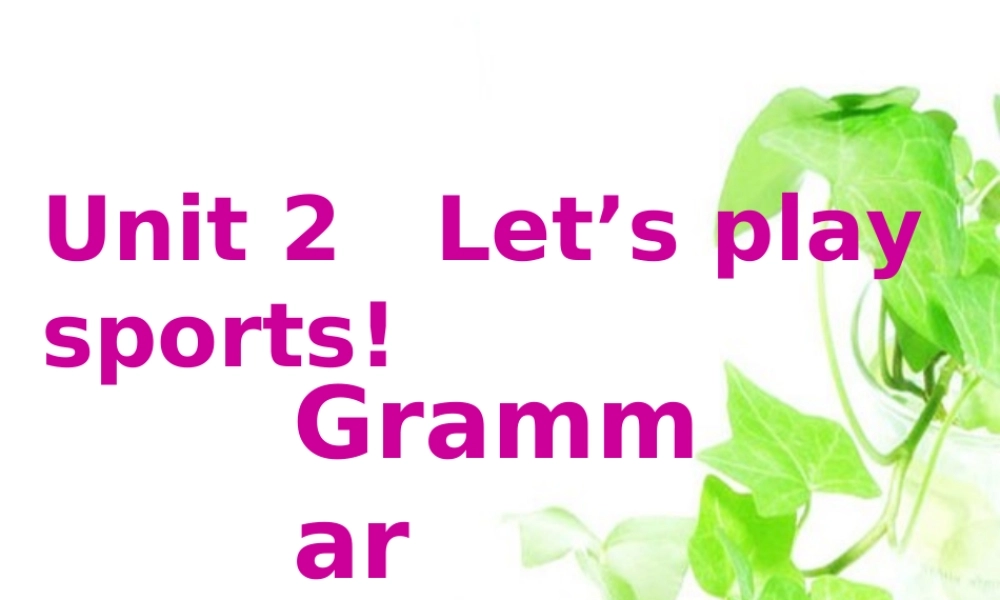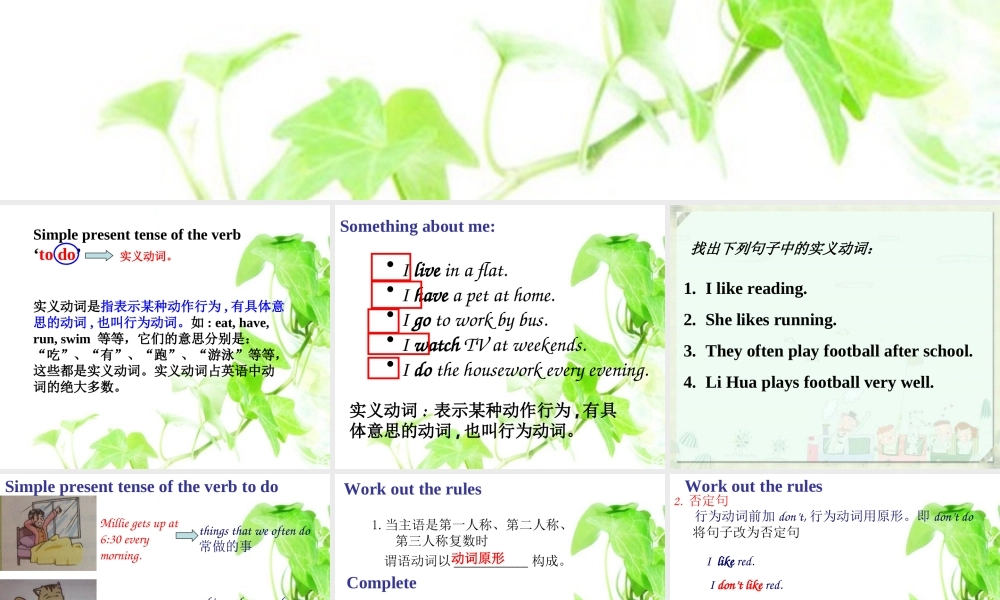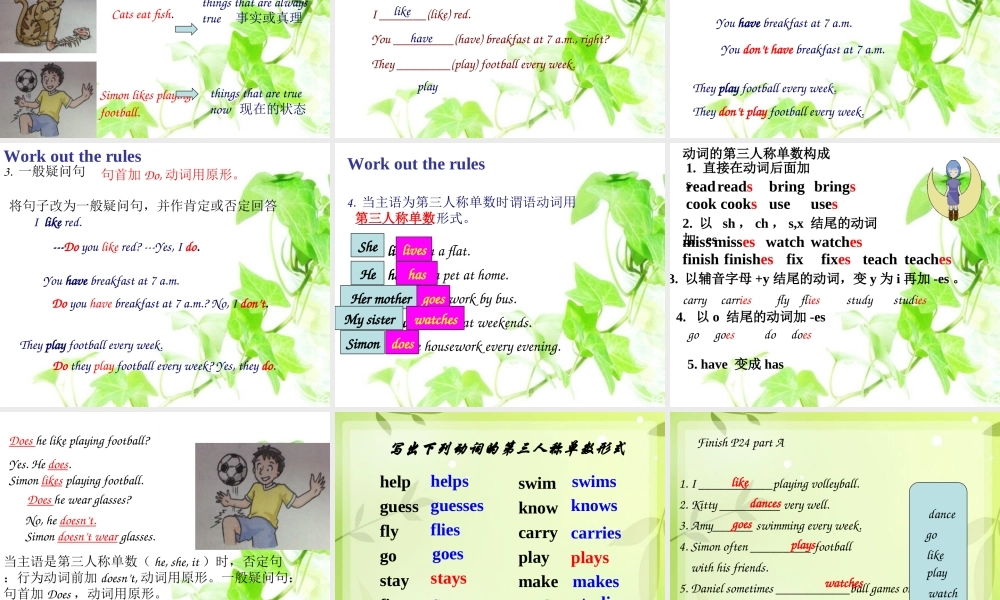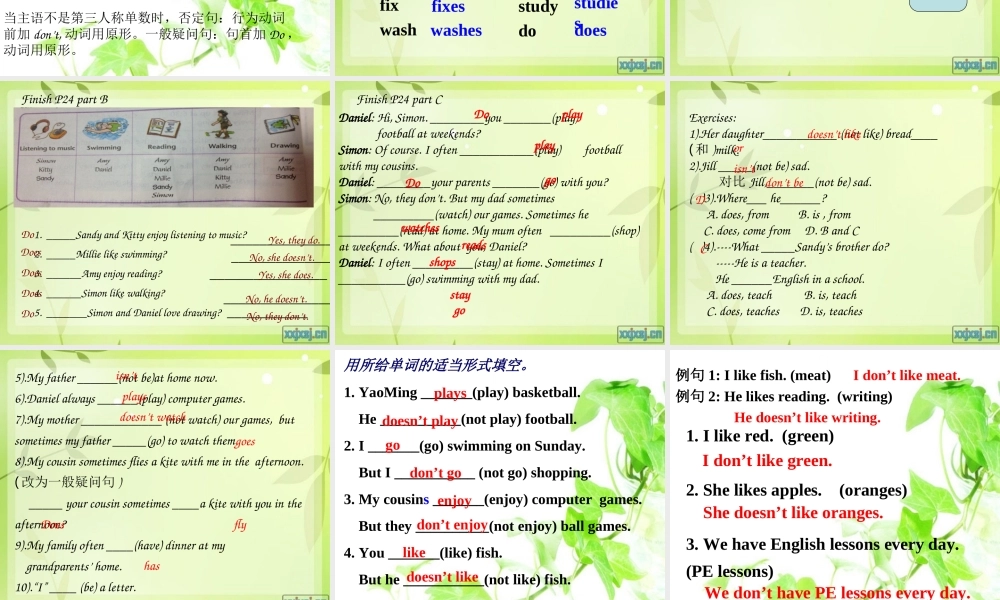Unit 2 Let’s play sports!GrammarSimple present tense of the verb ‘to do’实义动词。实义动词是指表示某种动作行为 , 有具体意思的动词 , 也叫行为动词。如 : eat, have, run, swim 等等,它们的意思分别是:“吃”、“有”、“跑”、“游泳”等等,这些都是实义动词。实义动词占英语中动词的绝大多数。• I live in a flat. • I have a pet at home. • I go to work by bus. • I watch TV at weekends. • I do the housework every evening. 实义动词 : 表示某种动作行为 , 有具体意思的动词 , 也叫行为动词。Something about me: 1. I like reading.2. She likes running.3. They often play football after school.4. Li Hua plays football very well.找出下列句子中的实义动词:Millie gets up at 6:30 every morning. Cats eat fish.Simon likes playing football. Simple present tense of the verb to do things that we often do 经常做的事things that are always true 事实或真理things that are true now 现在的状态1.当主语是第一人称、第二人称、 第三人称复数时谓语动词以 ___________ 构成。动词原形I _______(like) red. You _________(have) breakfast at 7 a.m., right? They ________(play) football every week.likehaveplayCompleteWork out the rules2. 否定句行为动词前加 don’t, 行为动词用原形。即 don’t doThey don’t play football every week.I don’t like red.I like red.You have breakfast at 7 a.m.You don’t have breakfast at 7 a.m.They play football every week.将句子改为否定句Work out the rules3. 一般疑问句句首加 Do, 动词用原形。将句子改为一般疑问句,并作肯定或否定回答---Do you like red? ---Yes, I do. Do you have breakfast at 7 a.m.? No, I don’t. Do they play football every week? Yes, they do. I like red.You have breakfast at 7 a.m.They play football every week.Work out the rules第三人称单数I live in a flat. I have a pet at home. I go to work by bus. I watch TV at weekends. I do the housewor...




